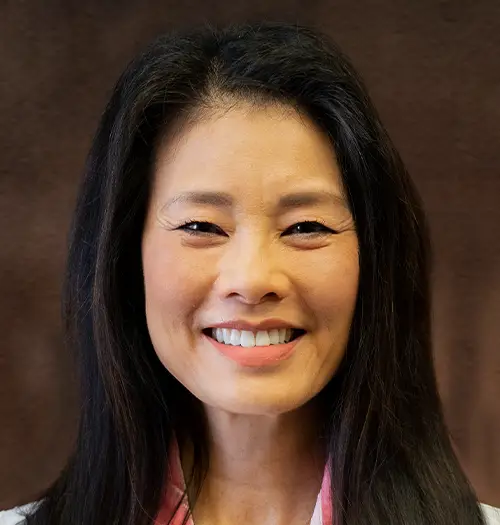The Importance of Gynecologists and Why Women Need Them
Gynecologists are physicians who specialize in women’s reproductive health and are trained to diagnose, treat and prevent a wide range of conditions related to the female reproductive system. While many women avoid visiting a gynecologist until they experience a health issue, consistent check-ups are crucial to a woman’s overall health.
Regular gynecological visits are essential for maintaining reproductive health, receiving preventative care, managing menstrual health and addressing various reproductive and sexual health concerns. The American Congress of Obstetricians and Gynecologists recommends females have their first gynecologic visit between the ages of 13 and 15, which is typically when menstruation starts. Annual pelvic exams and Pap smears should start at age 21.
Preventative Care
Preventative care is one of the main reasons to see a gynecologist. Jennifer C. Bailey, MD, a physician with Hattiesburg Clinic Obstetrics and Gynecology, stated the Importance of gynecological check-ups.
“Preventative care is the cornerstone of women’s health, and regular visits to a gynecologist play a crucial role in maintaining overall well-being. These screenings allow us to take action before a condition can escalate. Investing in preventative care is an investment in a healthier future for every woman,” Bailey said.
Regular check-ups and exams allow gynecologists to detect and address any potential issues early on, helping to prevent more serious conditions down the line. For example, cervical cancer can often be prevented through routine Pap smears, and breast cancer through mammograms. Gynecologists can also test for sexually transmitted infections. Detecting these conditions in their early stages dramatically improves the chances of successful treatment and recovery.
Menstrual Health
Another fundamental reason to visit a gynecologist is menstrual health. Menstruation is an essential aspect of a woman’s reproductive system that often comes with various challenges and health concerns. Gynecologists educate patients about the menstrual cycle, including the various phases and hormonal changes and what is considered normal and abnormal in terms of menstrual flow and symptoms. Gynecologists also diagnose and treat conditions such as irregular periods, heavy bleeding and painful cramps, ensuring that women can manage their menstrual health more comfortably.
Contraception and Family Planning
A gynecologist plays a crucial role in family planning by providing a wide range of services and guidance to help individuals and couples make decisions about when and how to expand their families. By offering a range of birth control options and discussing their benefits and risks, gynecologists help women make informed choices about contraception. Gynecologists can prescribe and, in some cases, fit or administer contraceptives. They help monitor the effectiveness of the chosen birth control method and address any side effects or concerns.
Gynecologists can assess a person’s fertility and provide guidance on achieving or avoiding pregnancy. For individuals or couples planning to start a family, gynecologists can offer preconception counseling. This may involve discussing ways to optimize health and increase the chances of a healthy pregnancy, such as managing chronic conditions and reviewing medication usage.
Most gynecologists are also obstetricians, meaning they are physicians who specialize in pregnancy care. They can provide prenatal care and guidance throughout pregnancy and monitor the health of both the mother and the developing baby, ensuring a safe and healthy pregnancy.
Infertility
Gynecologists are usually the first point of contact for individuals or couples struggling with infertility, which is the inability to conceive after one year. Libby Y. C. Kot, MD, with Hattiesburg Clinic Obstetrics and Gynecology, stressed the importance of having a gynecologist to aid in your fertility journey.
“As gynecologists, we strive to support individuals or couples navigating the challenge of infertility. Our goal is to empower our patients with the knowledge and guidance needed to increase their chances of a successful pregnancy,” Kot said.
If a couple is having difficulty conceiving, gynecologists can perform tests and evaluations to identify potential causes of infertility. Depending on the diagnosis, gynecologists can offer various treatment options for infertility. They may also provide guidance on timing intercourse for conception.
Gynecological Conditions
In addition to maintaining reproductive health, gynecologists diagnose and treat certain conditions, including menopause, uterine fibroids, endometriosis, urinary incontinence, pelvic pain, prolapse and more. They are also trained to perform hysterectomies and other gynecological surgeries.
- Menopause: Menopause happens when women reach the permanent end of their menstrual cycle. Reaching menopause is a transitional moment for women that can often bring a wide range of physical and emotional changes. Gynecologists help women navigate these changes. They can provide guidance and treatment options to alleviate symptoms such as hot flashes, mood swings and bone density loss. They may also discuss hormone replacement therapy.
- Endometriosis: Gynecologists play a vital role in the diagnosis and treatment of endometriosis. Endometriosis is a disease in which cells that line the uterus spread to other areas outside of the uterus. For many women, endometriosis can cause severe abdominal pain. While endometriosis is a chronic condition, early diagnosis can remove harmful tissue before it spreads to other organs of the body, preventing further complications and relieving chronic pain.
- Uterine Fibroids: Uterine fibroids are a type of tumor that can grow inside the uterus, in the uterine walls or on the outside surface. They are non-cancerous (or benign) and can be symptomatic or asymptomatic. Fibroids can be asymptomatic and require no treatment. When fibroids are symptomatic, they can present with different symptoms. A gynecologist will formulate a treatment plan tailored to each specific situation.
- Prolapse: Pelvic organ prolapse happens when the pelvic floor weakens or tears, causing the organs they hold in place to sag or bulge. The symptoms of prolapse can vary depending on the severity of the prolapse and the organs involved. Some women have mild symptoms, while others may experience significant, regular issues. Depending on the diagnosis, gynecologists can recommend treatment options ranging from lifestyle modifications and exercises to surgical intervention.
- Hysterectomy: A hysterectomy is a surgical procedure that involves the removal of the uterus. This can be performed minimally invasive or through different modalities depending on each patient’s specific needs.
It is essential for women to prioritize their reproductive health with regular visits to a gynecologist. By providing regular check-ups, specialized care, education and support, gynecologists help women stay healthy, detect issues early and make informed decisions about their health and well-being.
Jeffery L. Hudson, MD, with Obstetrics & Gynecology, said, “We recognize and understand the unique concerns that each woman brings to her health journey. Our dedicated physicians invest the time necessary to discover the root causes of those concerns and come up with a plan of care to address those needs. The well-being of our patients is our top priority, and we invite you to reach out and schedule an appointment.”
At Hattiesburg Clinic Obstetrics & Gynecology, we believe it is important to find a knowledgeable gynecologist that you trust. With an excellent reputation, Hattiesburg Clinic is a leader in Southern Mississippi for women’s health. We are confident in not only our quality of care, but also our emphasis on delivering an exceptional, patient-centered experience.
For more information, call (601) 268-5640 or visit www.hattiesburgclinic.com.



